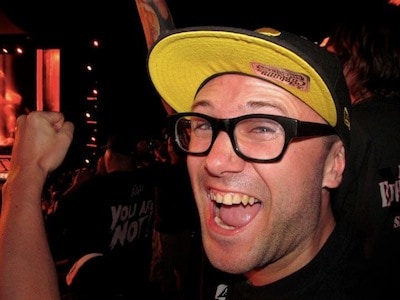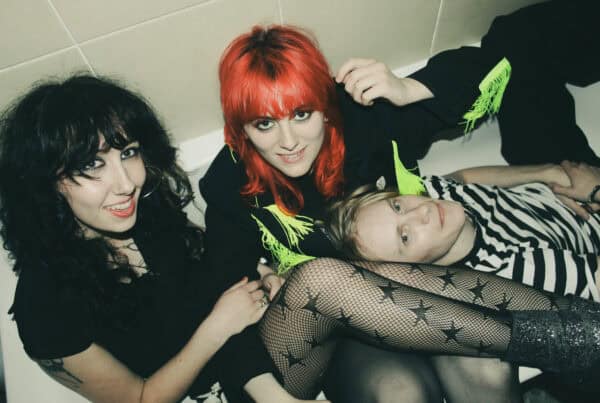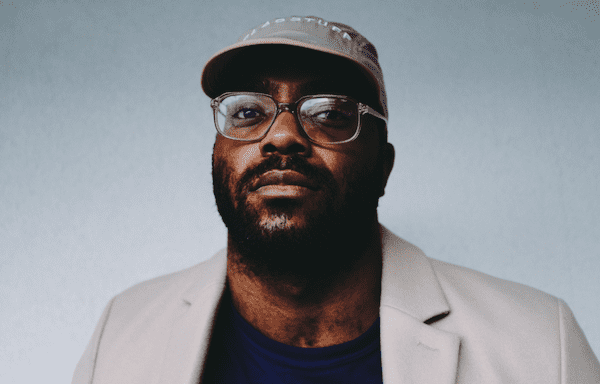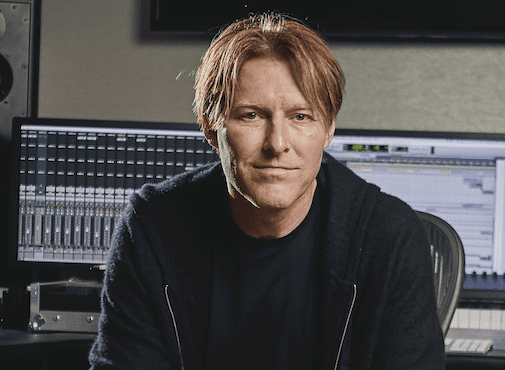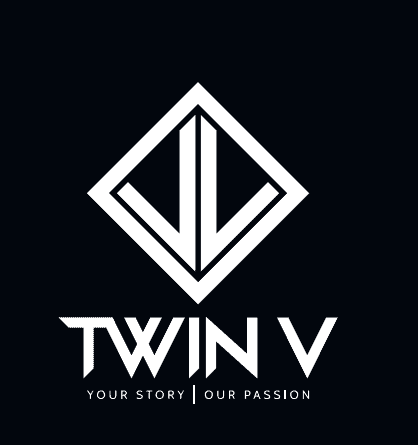In our latest Industry Spotlight we talked to Scuzz TV presenter and music journo, Terry Bezer where he offers some pearls of wisdom to aspiring journalists, talks to us about what he looks for in a band and shares some of the most defining moments of his career.
“Mistakes are only mistakes if you don’t learn from them”
S] We know you’re a busy guy so what have you got going on right now?
T] “I’m doing a bunch of freelance stuff. I still present on Scuzz TV, we’ve done a ‘behind the album’ series so there’s usually a bit of research involved. I’m a fan, I’m asking what I want to know because that’s what fans want to know. I do The Pulse every week which involves picking four hours worth of music. I basically look after the more ‘scene’ stuff. Because it’s very different to metal and classic rock programming, I want to bring new bands forward and show everyone how exciting that and bring it together with the bigger names of the scene. For example, I don’t think you would hear Pierce The Veil or Asking Alexandria on traditional daytime radio so it has to be a traditional introduction to that scene. I also do writing and reviews for Metal Hammer and I do Front Magazine’s music reviews every month. I do bits and pieces of every side of the business.”
S] You’ve been doing this since you were younger and have done so many different roles in the industry, so how did you get your break?
T] “I think you have to start at the bottom which almost always involves no pay whatsoever. It means making contacts, getting advice from the right people and always being alert. I started by doing my work experience at school when I was 15; I got a week’s work placement at Metal Hammer. The only thing I got to do was write the demos review and I hoodwinked my own band into that! What I learned that week was that I definitely wanted to do it and the only people that make it in this business are the people that dedicate themselves one hundred percent. There are a lot of times when things get hard and the hardest part of it all is getting on the ladder in the first place. Metal Hammer moved to Bath so I started doing work experience for Kerrang!, I would do it during my half-terms. Pre-internet when people would fill in their reader’s poll where they would write them on a page and send them into the magazine, I spent two weeks of a half-term just putting those into a database. A production assistant told me the best thing I could do was write for a fanzine and hone my skills that way so I started writing for Drowned in Sound and I met Chris Evans who, when Metal Hammer moved back from Bath to London, was news editor at the time. He asked to see my work, I sent it to him and got a freelance job through that and from there, I’ve just kind of built and built. It took me 5 years of being a freelance writer before I managed to get a full time job in the industry. I think people underestimate that they need to put the hours in; you literally have to give up everything to get a full time job in this industry. You have to learn to be able to take things on the chin. If you love it, if you really love it then it takes that level of commitment, it’s not an easy ride. No matter how low or high you’re standing in the business.”
S] What are your tips for people that want to interview bands and writing up questions?
TB] “I always find that it’s about building a personal relationship as quickly as possible. If you walk into a room and are nervous and awkward, bands find it harder to interact with you. You have to be personable straight away before the interview even starts. In terms of writing questions, I don’t have a rigid structure, I have a bunch of bullet points and make it a conversation. Listen to what the band is saying, pick up on what they’re talking about. You’re doing the interview for a band’s fanbase; even bands that I don’t like I put myself in the mindset of, ‘if I loved this band what would I want to know more about?’. If people have read the same stories and quotes from people and you just give them that they’ll walk away because they’ve heard it all already.”
S] What does a band need to do to get your attention?
TB] “Good tunes. Everyone loves to over-compensate. Mainly, I just want to feel excited. I like Nickelback, I think they’re a great band. If it was easy to do what Nickeback do, which is write killer music there would be loads of bands selling that many records and playing arenas and I think people get snobby about that kind of thing. Me personally, I just want to feel excited and be moved and I couldn’t care less if that’s Dave Hause with an acoustic guitar, or music like All Time Low, just brilliant pop music. I want to feel moved and excited and I don’t have any prejudices about that.”
S] Are there any mistakes that you made when you started out that you’ve learned from?
TB] “Mistakes are only mistakes if you don’t learn from them. A lot goes on personality as much as it does on ability. It’s such a simple and obvious thing but it’s something that lots of people struggles with in the music industry. If you’re just nice to people then you won’t have too hard a job. People that I’ve seen struggle either talk down to people or have an attitude when they get into the industry and act like a primadonna; that would be the biggest thing that I say don’t do. I think not being decent and being a dickhead to anyone at any time is the biggest mistake that I’ve seen people make. There’s a line between having an attitude and an opinion. I struggled with that when I was younger because I was very passionate about rock music, it just came across as a bit confrontational and you need to learn to manage that.”
S] There are aspiring journalists from all over the country, do you think that geography is a barrier if you’re not from around London?
TB] “The reality of it is that geography is a barrier. When bands come in they come to London so the industry has to be based here. The record labels are all based here, the band’s biggest dates are often in London and the whole industry is based here. It’s not a business for the half-hearted, if it is everything to you, you have to come to London. I have a lot of determination which enabled me to do my job, but more than that I’m based in London. If you’re not based in London the only thing you could do is write for fanzines, hone your craft and then when you’re old enough or have the means to get to London to give it a proper bash then at least you’ve done the ground work. If you arrive here and you’re as close to the finished article as you can be then you’ve got a much greater chance than just coming here on a whim. The sad reality is that you have to come to London if you’re going to do this. It’s the way of the business unfortunately, it’s a London-based business.”
S] What is the best piece of advice that you’ve received?
TB] “It’s hard to kind of melt it down because I’ve been lucky enough to work with amazing, talented people over the years and the best bit of advice that I can give would be ‘never stop learning’. I’ve done this for almost twelve years and you can never think you’ve achieved it all. I’ve always learned from younger people that come into the industry with a fresher take on things or people that have been in the industry for a while. Never be afraid to ask questions about how things work. That’s the best bit of advice that I could give. It’s best to learn on the job. Don’t try to write like everyone else writes, be yourself. If you’ve got a voice and you want it to be heard then don’t be afraid to express yourself in a way that comes from the heart. Don’t try to fit into the system, I don’t believe in a set way of writing. I think personality is what matters in the industry.”
S] How have you changed from doing this job from when you were younger to now? What have you learned about yourself?
TB] “I think that I’m happy with my standing now because I’ve done it for a while and I’ve done so many different things. I’ve reached the stage now where I want things to continue, it’s not a secret that people have questioned media in the future and where it’s going. I think it’s my responsibility now as someone that’s done it to make sure that there still is a music industry; it’s why I fight for younger bands’ music. I’m still incredibly young, even at 30, but rock music and media is written by people a lot older than I am and people that don’t understand that classic albums are still being made. I think it’s my role now to make sure that rock media is still exciting for young people. Chances are your favorite bands and albums are bands from your teens and early twenties. That’s when music meant everything to you, your life is your hobbies and what you throw yourself into. I think media can be a bit sneering to what young people listen to. You don’t have to get jaded as you get older, this is a job that enables you to stay young. I see this as a duty to give young people something to be excited about, to not treat them like their second-class citizens.”
S] Do you have any challenges you want to face up to now that you’re in a point where you’re happy with your career?
TB] “There’s always a band around the corner to be excited about and I think that’s what is fresh and exciting about it now. I’m almost more excited by this job now than when I was younger and wide-eyed. The thing that keeps it fresh and exciting is that there is always another band that’s going to excite you and you’re going to talk to. If you genuinely care, there’s always something to aspire to. If I hear a new album that’s poignant or a band does something I’ve never heard before, that’s a reason to be inspired and excited. Every time there’s an album that excites you there’s a new aspiration to talk to this band. Now that I’m in the position I’m in, I can do it across radio or TV and suggest it to editors. If I hear something that’s new and exciting I get the chance to put that out to the public. That’s why I wanted to do the job in the first place and that still excites me today.”
S] What moments from your career are you going to look back on when you’re older that were defining to you?
TB] “Two things that stand out; one was seeing myself on the big screen at Donington Park. It’s the home of hard rock and metal. [Download Festival] is the busiest weekend of the year and the Sunday night when I finally got to go out and watch the bands and see our interviews going on the big screen, I nearly burst with pride when I saw that. Another time my Mum and Dad came up to Donington and I was doing the Metal Hammer podcast at the time. I was there with my parents and we were watching Bullet for my Valentine with them and this kid came up and asked ‘are you Beez from Metal Hammer podcast?’ and my parents just looked at each other. We come from a part of the world where people live and die in the same town and go to the same pubs for the rest of their lives. It was great to get to that stage and watch my Mum and Dad be like, wow.”
For more information, follow Terry on Twitter here.
Transcribed by Francesca Fortunato for Soundspheremag.com

